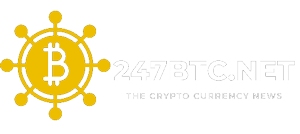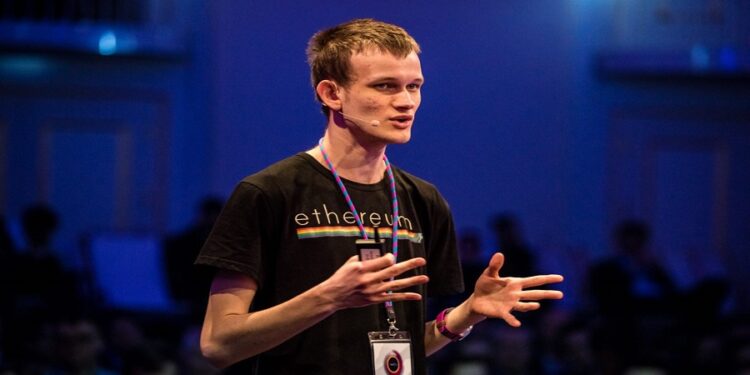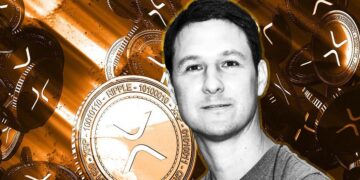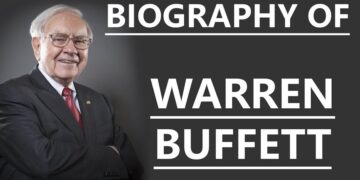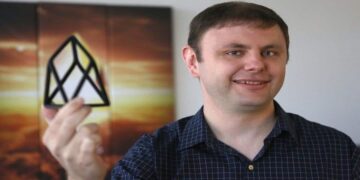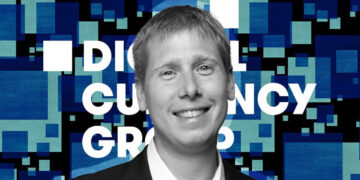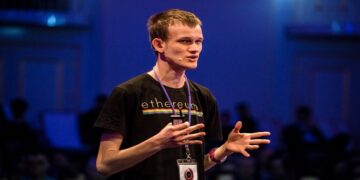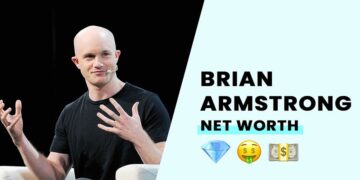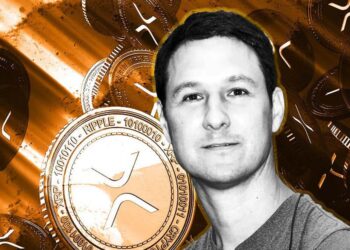Vitalik Buterin, the founder of Ethereum – the second-largest market cap blockchain platform worldwide after Bitcoin, displayed his innate talent at an early age and was soon alienated by his peers. However, this situation proved to be instrumental in his discovery of the negative aspect of centralized power, giving rise to Ethereum – a cryptocurrency with significant global influence.
Despite facing countless challenges throughout his childhood until adulthood, Vitalik never gave up and always devoted himself to his work. So, how did Vitalik Buterin build his Ethereum empire? What did this mathematical prodigy have to go through to achieve the success he has today?
Table of Contents
ToggleWho is Vitalik Buterin?
Lonely mathematical genius
Vitalik Buterin is a Canadian-Russian writer and programmer who gained fame before the age of 20 by founding Ethereum. Ethereum is a decentralized, open source computing platform based on blockchain technology with the ability to execute smart contracts. As of writing, the market capitalization of Ethereum has reached over 367 billion USD, which is almost half of Bitcoin’s market capitalization, with over 755 billion USD.

From a young age, Vitalik demonstrated an innate mathematical ability. At the age of 4, his favorite toy was the Microsoft Excel spreadsheet software. In elementary school, he was selected for a class of gifted students, which allowed him to further develop his skills in mathematics, programming, and economics. Notably, he can perform mental addition of three-digit numbers twice as fast as his peers of the same age group.
Vitalik’s loneliness is not a choice but rather a familiar way of life due to his high IQ coupled with mathematical genius, which made him an outlier and resulted in his ostracism by his peers. Despite his friends regularly engaging in activities outside of school hours, Vitalik was never invited. For a considerable time, he did not even know that extracurricular activities existed.
Vitalik made a statement wherein he mentioned that at the primary level, many individuals refer to him as a mathematical prodigy. However, he has experienced several moments where he questions why he cannot be like an average person.
The negativity associated with centralized power is exemplified by Warcraft’s depiction of an unsightly facade
Instead of enjoying time with friends, Vitalik chose to spend his time playing World of Warcraft. It was within this virtual world that Vitalik saw the negative effects of centralized power. In Warcraft, he worked tirelessly to obtain the Siphon Life spell for his wizard character, enduring great difficulty and frustration. However, during a game update, the company removed this spell. That night, Vitalik found himself unable to sleep as a result of this unexpected turn of events.
I have come to realize that all regulations imposed by the government and controls implemented by corporations are iniquitous. Within the social institutions, some individuals behind the desks delight in saying, “Alright, this time how can we make trouble for a thousand people?”
Vitalik’s worldview closely resembles that of those early adopters of Bitcoin who believed in the advent of a new economy. He holds the belief that the powerful have too much hold over society and for balance to be achieved, power must be distributed amongst the weak. This serves as the foundational philosophy for the emergence of the decentralized Ethereum platform.
Vitalik Buterin – From Bitcoin to Ethereum
A high school student writes a receipt for Bitcoin (2011 – 2012)
At the age of 17, whilst contemplating his life direction, Vitalik was introduced to Bitcoin by his father – a computer scientist. At the time of his discovery, Bitcoin had only been in existence for two years.
Initially, there was a doubt about the value of this new currency as it did not have any backing from any authority, such as the government’s use of gold reserves to protect the value of money. However, as they delved deeper into the subject, their curiosity grew, and they became more interested in participating in this emerging economy. Unfortunately, Vitalik did not have a powerful enough computer to mine Bitcoin, and he did not have the financial means to purchase it. As a result, they decided to seek employment in the Bitcoin field, and they were fortunate enough to become a writer for Bitcoin Weekly, earning a writing fee of 5 BTC per article (equivalent to $3.50 USD at that time).
Vitalik’s articles caught the attention of Mihai Alisie, a Bitcoin enthusiast in Romania, prompting him to invite Vitalik to co-found Bitcoin Magazine in 2011. Consequently, Vitalik assumed the role of the magazine’s lead author.
Dropped out of college to go “all-in” on crypto (2012 – May 2013)
In the year 2012, Vitalik graduated from high school and pursued a Computer Science degree at the University of Waterloo in Canada. During his studies, he served as a research assistant for the cryptography expert, Ian Goldberg, the former chairman of the Tor Project’s Board of Directors, a non-profit organization focused on digital privacy rights.
In May 2013, acting as a journalist for Bitcoin Magazine, Vitalik travelled to California to attend a conference and meet Bitcoin enthusiasts from around the world. This was the first time Vitalik witnessed the crypto community thriving and developing around this new economic system. He encountered investors from the dotcom era who compared cryptocurrencies to the dawn of the internet, vendors showcasing hardware wallets, Bitcoin trading platforms, and even Bitcoin ATMs.
Upon reminiscing, Vitalik was deeply moved by that moment. It convinced him that the cryptocurrency revolution was worth pursuing, prompting him to make the decision to drop out of college and delve further into this burgeoning industry.
Around the world to find new paths for crypto (October 5 – October 2013)
Vitalik embarked on a worldwide journey to learn more about various cryptocurrency projects. During his travels, he observed that many of these ventures were attempting to build Layers on top of Bitcoin. However, this posed a serious security concern due to the language used to construct Bitcoin, which was designed to minimize the complexity of transactions.

Vitalik discovered that by using Turing programming language to create a new version of Bitcoin, he could potentially offer unprecedented digital services such as reviving Facebook, creating a stock market pool, and building a government-free digital corporation. However, despite Vitalik’s efforts, no one agreed to collaborate with him. The founder of Ethereum ultimately pursued his own project independently.
Ethereum – Great successor of Bitcoin (November 2013 – 2015)
In November 2013, a month after returning home, Vitalik completed his idea on Ethereum in the form of a white paper, which he then sent to his acquaintances. The concept of Ethereum was well received by all, and around 30 individuals reached out to Vitalik to discuss the prospects of this opportunity.
On January 26, 2014, Vitalik unveiled Ethereum at the North American Bitcoin Conference in Miami, describing it as a global computer running on a decentralized network with potential applications such as insurance, decentralized exchanges, and DAOs. Upon stepping off the stage, Vitalik received enthusiastic applause from proponents who believed that Ethereum would be an excellent successor to Bitcoin. The delivery of this statement exuded a professional and formal tone while also providing significant information.
Subsequent to the conference held several months later, Ethereum carried out an initial coin offering (ICO) for Ether–the original token of the network–and successfully raised 31,000 BTC (equivalent to 18 million USD at that time). At this juncture, the Ethereum Foundation–a nonprofit organization based in Switzerland–was established to oversee the development of Ethereum’s open-source software.
In 2015, Ethereum’s first fully functional version, Frontier, was officially released. The platform’s rapid success quickly captured the attention of industry giants like IBM and Microsoft.
In the year 2017, he secured a spot in the top 10 of the “40 Under 40 most influential young people” chart as well as the esteemed Forbes’ list of the 600 most precious individuals under the age of 30. Nonetheless, Vitalik’s reputation has grown alongside the development of Ethereum. Regrettably, rumors have resurfaced in a manner that echoes his schooling history.
There are individuals who assert that he suffers from autism and that his whole life can be packaged into a suitcase. Additionally, it is rumored that he has ingested an entire lemon, including the peel. Even those who work closely with Vitalik describe him as an enigmatic figure that is difficult to comprehend.
Historical Incident: The Ethereum DAO was hacked for $150 million (July 4, 2016)
Ethereum allows users to build decentralized applications (DApps) and self-governing organizations (DAOs) without central authority. In 2016, a high-profile, unprecedented incident occurred with the DAO in which it was hacked due to a flaw in the underlying code shortly after raising over $150 million USD worth of ETH from more than 11,000 members. However, the hacker was unable to immediately distribute these funds due to the DAO’s smart contract stipulating a 28-day lockup period for the money.
In light of the situation, Vitalik planned to employ a soft fork technique, which involves a software upgrade and restricts the existence of the original blockchain. This would include blacklisting the hacker and preventing any stolen funds from being transferred. However, the hacker declared that their possession of the funds was legitimate due to the exploitation of a technical loophole in the DAO. They warned that anyone attempting to recover Ether would face legal consequences.
After a series of heated debates on public forums, an upgrade to the Ethereum software, called a hard fork, was executed on July 20, 2016, at block 192,000. This upgrade was implemented to recover stolen funds and caused the Ethereum network to split into two distinct blockchains: Ethereum/ETH (the new blockchain) and Ethereum Classic/ETC (the original blockchain), which can now coexist parallel to each other.
This action has sparked intense debate as blockchains are designed to be immutable and resistant to censorship. This scenario presents technical challenges and raises questions about the ethical and philosophical foundation of the technology, as well as the ability of the Ethereum project team to recover. Nonetheless, Vitalik has taken all criticisms into account to safeguard assets for everyone.
China’s “God V”
The year 2017 saw Ethereum achieve remarkable success, as the price of one ETH surged from 40 to 826 USD. Currently, despite facing challenges along the way, ETH still maintains its position as the “runner-up” on the market capitalization chart, valued at 2,800 USD/ETH. However, it is important to note that Ethereum had to overcome obstacles at the outset of its journey.
In 2015, after the launch of Ethereum, Vitalik’s wallet was running low. He sought a meeting with Feng Xiao, the CEO of Wanxiang Blockchain, who is highly influential in both investment and politics. Recognizing the potential of Ethereum, he agreed to purchase 500,000 USD worth of ETH and help save Ethereum from near collapse.
Vitalik shared that during a time when Ethereum was in need of funding, Wanxiang purchased 500,000 USD worth of Ethereum. He expressed that this investment was crucial in rescuing the project.
Furthermore, Xiao introduced Vitalik to his vast investment network and established the first Ethereum community worldwide. This provided Vitalik with the opportunity to network with many leading crypto experts in China. To facilitate his work, he began self-learning Chinese through his mobile phone, becoming fluent in just a few months. Vitalik frequently organizes Ask Me Anything sessions, where he answers technical questions in Chinese. Remarkably, the founder of Ethereum even corrects translations in Chinese.
Vitalik has also served as an advisor to the China Ledger Alliance and colleagues at Fenbushi Venture Capital, which has contributed greatly to his fame and earned him the distinction of being regarded as a deity in China.
Great Son of Russia
Vitalik, a native of Russia, has made numerous contributions and earned great admiration in his homeland. In August of 2017, more than 5,000 people gathered at the Skolkovo Innovation Center in Moscow to hear Vitalik speak. During his address, he proclaimed Russia as one of the leading countries in research and experimentation of blockchain technology, with Moscow boasting one of the largest clusters of nodes on the Ethereum network.
Due to the global impact of Ethereum, Vitalik had the opportunity to engage with multiple leaders from various countries such as the United Kingdom, Estonia, Singapore, and Thailand. However, following his conversations with these high-level executives, Vitalik did not perceive any exceptional qualities that differentiated them from the average person.
According to Vitalik, achieving success requires a combination of hard work, talent, and finding the right people. It is not solely determined by those who are the most intelligent, but rather anyone has the potential to contribute and make a difference in the world.
Vitalik Buterin and Ethereum 2.0
The blockchain technology powering Ethereum is undergoing a significant upgrade to Ethereum 2.0 (also known as Serenity) by transitioning from the Proof of Work consensus algorithm to the Proof of Stake consensus algorithm. This upgrade is expected to enhance the efficiency, speed, and scalability of Ethereum transactions. Additionally, the use of Proof of Stake is anticipated to significantly reduce energy consumption by approximately 99.95% compared to Proof of Work.
This upgrade consists of three separate builds, occurring at three different times:
- Beacon Chain: In the year 2020, the introduction of staking capability to Ethereum facilitated the addition of enhanced features and paved the way for future upgrades.
- Unify: The anticipated Q2/2022 launch of Ethereum’s merger will integrate the Beacon chain with the Ethereum main network, enabling staking support and marking the end of mining operations.
- Shard chain: This stage demonstrates the partitioning of the Ethereum network, occurring in successive phases to enhance the processing capacity, storage, and access of Ethereum transactions and data. The expected launch of the Shard Chain is projected to take place in the year 2023.
The continuous upgrading of Ethereum has experienced frequent delays, and Vitalik has disclosed that one of the main causes of the extended timeline of the Ethereum upgrade is due to conflicts that frequently arise within the project team.
During the discussion of our project, Vitalik shared that the major challenge did not lie in technical aspects, but rather in people-related issues that caused him great concern. He expressed his difficulty in achieving universal satisfaction among all involved parties.
Despite this, Ethereum is steadily progressing towards its 2.0 milestone. With Ethereum, Vitalik has not only determined his own future, but also established a platform that enables millions to build, develop, and realize their dreams – even those whom he has never met before.
Who is Jed McCaleb? A biographical profile detailing the founder of Ripple, Mt. Gox, and Stellar
Recently, Ripple is a name that should not be unfamiliar to cryptocurrency users as it has been a long-standing name...
Read moreWho is Phil Town? A biography of the man who required only $1000 to become a billionaire
Although not being a prominent investor in million-dollar deals, Phil Town is known for his dedication and discipline in investment....
Read moreWho is Jihan Wu? This is a biographical profile of the person who is famously known as the king of cryptocurrency mining
Jihan Wu was once a well-positioned individual with a broad path to advancement in the financial industry. It's surprising that...
Read moreWho is Warren Buffett and what are his life and career accomplishments as a genius in the investment industry?
While other children of his age were playing with childish games, Warren Buffett earned his first dollars by selling chewing...
Read moreWho is Dan Larimer? Biographies of the founders of Bitshares, Cryptonomex, steemit, Block.one and EOS
Dan Larimer is a well-known figure among the cryptocurrency investment community during the 2017 - 2020 period. This is because...
Read moreWho is Nakamoto Satoshi? The enigmatic mask of the Bitcoin wizard
Who is Nakamoto Satoshi? This article will provide fascinating information about Satoshi Nakamoto, and the process of his creation of...
Read moreWho is Gavin Wood? Overview of Polkadot founders
On October 22, 2022, Gavin Wood made an official announcement via Twitter that his fellow co-founder of Parity, Björn Wagner,...
Read moreWho is Hayden Adams? And His Total Net Worth
Hayden Adams is the founder of Uniswap, a decentralized exchange (DEX) for Ethereum tokens. Let's take a closer look at...
Read moreWho is Chris Larsen? Biography of the world’s richest crypto billionaire
In today's article, 247btc.net invites readers to explore the life and career of Chris Larsen, one of the influential figures...
Read moreWho is Barry Silbert? He is the founder and CEO of Digital Currency Group
In a recent statement made by Cameron Winklevoss, chairman of Gemini, he stated that "Digital Currency Group (DCG) will not...
Read moreWho is Vitalik Buterin? He is a solitary genius and the creator of the Ethereum empire
Vitalik Buterin, the founder of Ethereum - the second-largest market cap blockchain platform worldwide after Bitcoin, displayed his innate talent...
Read moreElon Musk – Billionaires influence the crypto market through tweets
Elon Musk is known as one of the wealthiest billionaires in the world, having achieved great success with companies such...
Read moreWho are the Winklevoss brothers? Biography of Bitcoin billionaires Tyler Winklevoss – Cameron Winklevoss
Tyler and Cameron Winklevoss, who are identical twins, rose to fame for their lawsuit against Mark Zuckerberg for stealing the...
Read moreWho is Gary Gensler, the Chairman of the SEC, and his journey towards becoming a critic of cryptocurrencies?
Gary Gensler, who is the Chairman of the US Securities and Exchange Commission (SEC), has a background in teaching blockchain...
Read moreWho is Brian Armstrong? Biography of the founder and CEO of Coinbase Exchange
Coinbase was established in June 2012 by Brian Armstrong and Fred Ehrsam, with its main headquarters in San Francisco, California....
Read more